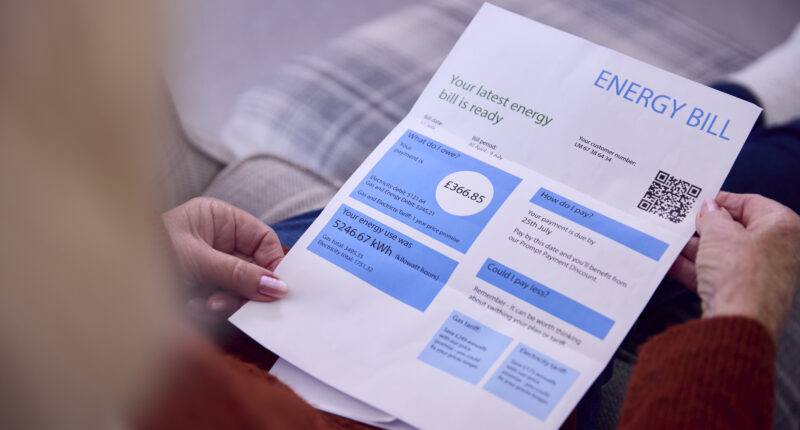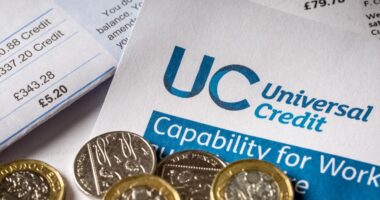OFGEM has issued an urgent energy bill warning to millions who could lose out on money later this year.
The regulator is warning households they might end up paying more by signing up to a fixed rate tariff.
A number of fixed rate tariffs have started entering the market cheaper than the energy price cap and it might be tempting to sign up.
One major advantage of these tariffs is that you can lock in a set rate per kilowatt hour for the length of your contract – usually 12 months.
As the rate is set, you are protected from any price rises. However, if the price of energy falls, you don’t benefit from the cut.
The average dual-fuel tariff household on the price cap is currently paying £2,074 a year but experts at Cornwall Insights are predicting this to drop to £1,860 from October 1.


So you might fix a deal less than £2,074 now, but end up paying more than the price cap from October.
In a recent tweet, Ofgem warned households to “think” before they fix.
It said: “Fixed-rate energy tariffs have seen a return to the market but check if they are right for you.
“Prices are still unpredictable and signing up for a fixed rate now might mean you miss out if prices fall in the future.”
Most read in Money
Emily Seymour, energy expert from consumer group Which?, said: “We wouldn’t recommend fixing anything higher than the unit rates in your current deal or for longer than a year.
“If you are offered a deal, then it’s really important to check the tariff’s exit fees in case you want to leave that deal early if the price cap comes down.”
Natalie Mathie, energy expert at Uswitch, meanwhile added: “The energy market remains volatile and predictions are frequently changing, so it’s impossible to say whether you’ll save over 12 months if you choose to fix now.
“Don’t let yourself be pressured into taking a fixed deal that you will struggle to pay.”
Cornwall Insights have predicted the energy price cap will remain “relatively stable” for the foreseeable future.
They also estimated the cap will rise to around £1,960 in January 1, 2024, before further small decreases in March and July 2024.
Energy prices surged as countries started opening back up following the coronavirus pandemic, driving up wholesale costs.
This was made worse following Russia’s invasion of Ukraine.
How to save money on your energy bills
There are a few ways you can cut back on the cost of your energy bills, starting with grants.
You might be able to get targeted support through the Household Support Fund (HSF), which is worth £842million.
The fund is being distributed via councils in England so you should get in touch with yours about what help you can get.
Some local authorities are handing out cash grants while others are providing vouchers to help residents pay for energy bills.
In most cases support is being offered to households on benefits or a low income.
You can find what council area you fall under by using the Government’s locator tool on its website.
You might be able to get a cash grant from your energy supplier if you’re struggling as well.
A number of firms offer them, including Scottish Power, E.ON and British Gas. Get in touch with yours to see what help you can get.
Beyond this, you can save money on your bills by making some simple changes.


Switching up your old halogen light bulbs to LED ones can save you money on your bills, and they’re better for the environment too.
You’ll also want to turn off any fuel-guzzling appliances as well – that could save you around £380 a year.
Do you have a money problem that needs sorting? Get in touch by emailing [email protected].
You can also join our new Sun Money Facebook group to share stories and tips and engage with the consumer team and other group members.









